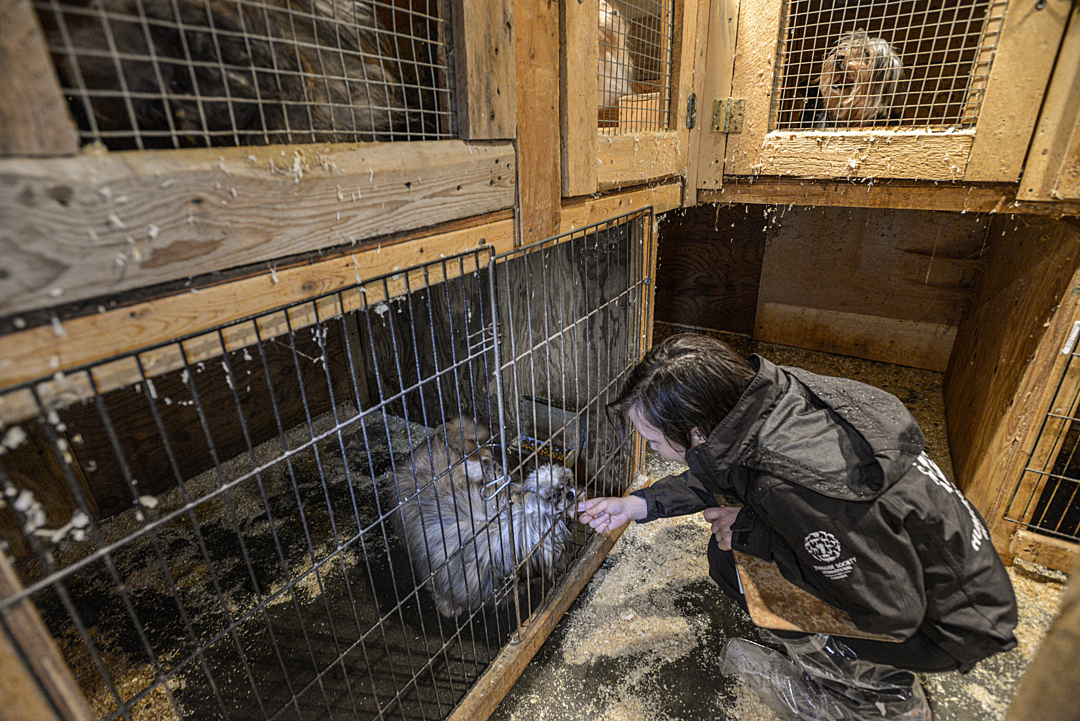Choosing a Responsible Breeder Impacts More Than Just Your Pup: Why & How
The landscape of animal welfare and animal rights advocacy is nuanced, and often emotionally charged, particularly when it comes to canine companions. But, what do these movements mean for a prospective pup parent looking to take home a pup? There are some simple takeaways for those looking to get a dog, where choosing an ethical breeder is an opportunity to make both an immediate and a lasting difference.
First, what are unethical breeding practices?


Puppy mills are high-volume breeding operations that prioritize profit over the health and welfare of dogs. These facilities often confine dogs in squalid conditions, depriving them of proper socialization, exercise, enrichment and veterinarian care. Female dogs are frequently overbred, forced to produce litter after litter in cramped cages without respite. The puppies that they produce often arrive at their new homes with hidden health problems, with poor socialization and with pups that can even be emotionally traumatized.
Beyond puppy mills, unethical breeders may engage in fraudulent practices such as falsifying vaccination records, ignoring genetic screening of dams and sires for diseases that will be inherited by litters, selling sick animals, or disappearing after taking deposits. These breeders, often operating online, can be difficult to track once concerns about a puppy's health or wellbeing arise.
For a long time, Canada has lacked stringent regulations to govern dog breeding practices. Authorities often don't know where breeding facilities are located, how many animals are kept, or the conditions under which they are bred. Ontario’s Bill 159, while a step in the right direction, represents only the beginning of necessary reforms. The fight to protect dogs from exploitation will require a sustained, multifaceted effort. This will include not only adequate enforcement but also incentives for breeders to embrace thoughtful breeding practices.
What can you do?
In the meantime, the most powerful tool in this fight is consumer awareness. Prospective pet owners must educate themselves before starting the process of rehoming a dog. Many people have little experience in "shopping" for a dog — it's not a frequent transaction in which the public learns from repeat exposure and experience. And, the lack of general education on the process creates an opportunity for unscrupulous breeders to deceive buyers pretty easily. Individuals may visit a substandard breeding operation and feel compelled to "rescue" a puppy by taking it home when they see them subjected to subpar conditions. However, this only reinforces the unethical business model and allows them to persist. The truth is that while this may save that individual pup by taking it home, you may be reinforcing an opportunity for this type of breeder and perpetuating the cycle for future pup populations.
The key to creating meaningful change is to educate yourself upstream of the decision to bring home a pup. Instead of making decisions driven by emotion, prospective dog owners should carefully vet breeders and seek out ethical sources before becoming emotionally attached to a pup. This helps dismantle the harmful system that exploits dogs for profit. By choosing responsible breeders or adopting from shelters, individuals can help raise the bar for the entire industry, promoting healthier, happier lives for all dogs.
Background: the spectrum of animal advocacy & what that means in the dog world
At its core, being an activist in the dog world means advocating for the redefinement of dogs from property to sentient beings deserving of respect, care, and protection. And, the difference between animal rights and animal welfare exists as a spectrum of advocacy in this space. Animal rights advocates assert that non-human animals should live autonomously, free from human exploitation or interference. Their philosophy posits that animals, like humans, possess inherent interests that should be safeguarded with their own sets of rights, irrespective of human benefit. This differs from the concept of animal welfare, which seeks to regulate and protect the treatment of animals within human systems. Welfare advocates prioritize the physical, psychological, and behavioral needs of animals. It acknowledges the reality of human benefit from the relationship with animals while striving to maximize animals’ quality of life.
In the broader public, the debate over granting animals formal legal rights has long been an unrealistic concept, particularly for livestock and other animals used for human consumption. However, advocates explain that this really isn’t a radical concept. The goal is to elevate the status of animals, ensuring that laws and practices reflect their capacity to experience a full life with their different physiology and their unique range of biological emotions. In countries like Canada, the UK, and the US, some basic legal protections are in place. While it’s a start, existing legislation is far from comprehensive.
The practical path forward in the Canadian context likely involves incremental, anthropocentric changes (where anthropocentrism refers to a human-centered worldview, where human benefit is at the center). This pragmatic approach at this stage of advocacy acknowledges the reality that animal welfare improvements are more likely to succeed when they align with human interests and sympathies too. For example, ensuring that breeding standards protect dogs’ wellbeing on individual and population levels will also ensure better outcomes for pet owners with healthier and happier furry members of their families.
With this perspective, change in the dog world significantly rests in the hands of consumers — specifically, those shopping for a pup. Each decision made when acquiring a dog has ripple effects on the industry. When individuals purchase puppies from puppy mills, puppy brokers or unethical breeders, they perpetuate harmful practices that prioritize profit over the wellbeing of the dogs. The simple truth is that demand drives supply, and as long as there is a market for poorly treated dogs, these operations will continue to persist. That’s where prospective pup owners have an opportunity to make a difference for dogs on an individual and population level.
 Find Responsible Breeders Near You
Find Responsible Breeders Near You
Explore ethical breeding programs that follow health testing, thoughtful pairings, and transparent practices.
Search